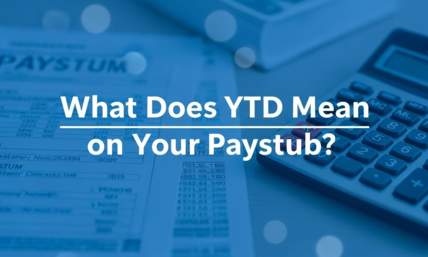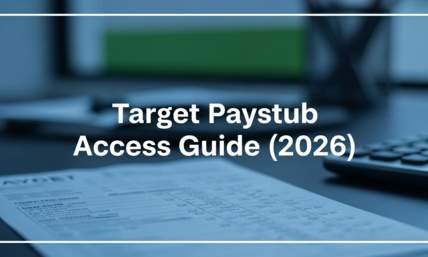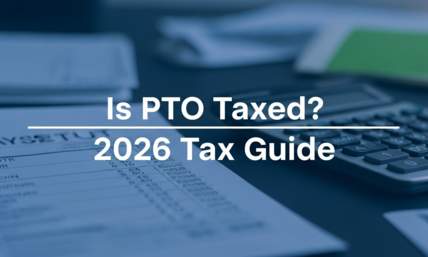Tax Preparation & Planning for Tax Season 2021
Did you just start a business or become a freelancer? You need to understand tax preparation for tax season 2021. The right tax planning strategies can help you determine how to prepare your taxes as a self-employed person. Then, you can know how to file taxes now and how to plan for taxes later on. Keep reading to learn more about tax preparation and tax planning as a freelancer or business owner.
Also read: A Full Guide on How to Calculate Income Tax On A Pay Check
Consider Your Business Structure
Whether you're a freelancer or own a small business, you need to consider your business structure. Most freelancers operate as sole proprietors, which doesn't require any paperwork or registration. A limited liability company (LLC) is another common structure, and it can separate your personal assets from your business.
You should consider what type of business you have because each type files taxes differently. As a sole proprietor, you can file your personal taxes. However, if you have an LLC, you'll need to file taxes for your business, too. All of this can affect how to plan for taxes and how to prepare your taxes. Your business structure will help you figure out what you need to file for the tax season 2021.
Also read: How to Review Your Paychecks Before Filing Income Taxes
Get A Separate Business Bank Account
Even if you don't have employees, you should get a business bank account. That way, you can keep those expenses separate from your personal bills. Separating your expenses will help you with tax preparation. You won't have to go through your bank statement and categorize which bills are personal and which are for business, making tax planning easier.
If you separate your expenses, it will be easier to figure out how to prepare your taxes. You won't have to waste time organizing everything.
Understand How Tax Brackets Work
Tax brackets can sound pretty simple. If you make a certain amount, your entire income will have the same tax rate. However, that's not how tax brackets work. Tax brackets separate your income and tax it at different rates. No matter how much you make, the first $9,950 for a single person will have a 10 percent tax rate.
Any amount from there to $40,525 will have a tax rate of 12 percent. So even if you make $30,000, you will only have to pay 12 percent on just over $20,000 of that. Understanding how tax brackets work can help you estimate what you'll owe in taxes. As a self-employed person, you'll need to pay both the employer and employee portions. Nevertheless, it's still important to know that tax brackets aren't flat rates.
Also read: Mandatory Deductions From Your Paycheck
Report Everything
Your taxes need to be as accurate as possible, and that means reporting all of your business transactions. It can be tempting not to report cash payments, but not doing so could cost you later. If the IRS decides to audit you or your business, you need to know how to file taxes properly. If you don't report everything you earn, the IRS could send you a bill after the audit.
Luckily, you can also report all of your business expenses. You can use your expenses to lower your taxable income, which can help you save money.
Also read: What Qualifies As Proof Of Income?
Track Your Expenses
Any time you spend money on your business, consider some tips on how to reduce taxes for independent contractors who use 1099 forms. Tracking any expense from a new computer to website hosting fees to paper or pens can help you save money. When you're self-employed, you can write off a lot of your business expenses. However, you can't write them off if you don't know how much you spent on what.
You can either track your expenses throughout the year or go back through them as part of your tax preparation. Tracking everything as it occurs can make your tax planning much easier.
Keep The Receipts
Tracking your expenses is a great step for how to plan for taxes. You should always keep a copy of your receipts to prove the transaction happened. A receipt can also come in handy if you outsource your tax preparation. You can use a folder or a drawer in your desk to store receipts. Then, when it comes time to figure out how to file taxes, you can have everything you need.
Receipts can show when and where your transactions occurred. That way, you can ensure you have everything for the tax season 2021.
Hire An Accountant
If you don't know how to prepare for taxes, you should hire someone. An accountant can help you go through your receipts and other documents. Your accountant can also help you with tax preparation and tax planning. Even if you know how to file taxes, doing so as a business owner isn't easy. You may need to use different tax forms than if you were an employee.
No matter how much you earned last year, an accountant can be worth it for tax season 2021. You can even write off the cost of your accountant when doing your tax preparation.
Pay Taxes Quarterly
When tax planning for future years, you should pay your taxes each quarter. If you earn a significant amount in your business, you will have to do this. Even if your business is fairly new and doesn't make a huge profit, paying quarterly can make tax preparation easier. Paying every few months can give you practice on how to prepare your taxes.
It can also decrease how much you'll have to pay at the end of the year. You can work with an accountant or use software to estimate how much you'll owe. Then, you can use that information when determining how to plan for taxes.
Tax Strategies
Tax planning is imperative for minimizing fees and expenses. There are over 30 million small businesses in the United States. Of all the hassles that confront small business, none are as feared as taxes. Having a winning 2020 tax strategy is essential to being viable as a business. On average, small business owners pay 19.8% taxes. The average small business gives up almost one-fifth of its profits to taxes.
There are many tax strategies to help address this loss, but having the right one for your business can mean the difference between making it and not. The important thing about having a tax plan is making sure it’s tailor-made to fit your business. A tax strategy should address your comprehensive issues. How much do you pay in taxes? How can you get more deductions? Could we change a process in order to qualify for more substantial deductions? Consider a few ways for how to plan for your taxes as a business owner.
1. Don’t Ignore Taxes
The most important fundamental to having a winning tax strategy is not to ignore your taxes. This includes trusting your accountant to do all the work for you. If you’re the owner of a business, you should research and understand the tax laws that affect your business. Tax laws are not set in stone, and they do change. Don’t be caught off guard by these changes, stay up to date on local, state, and federal tax laws.
It’s important that you understand how these changes will impact your day to day operations.
2. Take Command Of Your Taxes
One of the best things a small business owner can do is to become involved in tax preparation. Don’t trust others to handle things in your best interest; make sure you check on everything. Provide excellent leadership to the financial side of your business. One significant area of leadership is empowering your accountant to help build your tax strategy. They aren’t just plugging in numbers.
Accountants have valuable knowledge that may be leveraged for you. Make sure your payroll and human resources are also staying up to date and aware.
3. Reimburse Correctly And Accurately
If your business requires that you reimburse employees for any expense, make sure it’s a template the IRS accepts. Doing it right means deducting the expense, but you don’t report the reimbursement as taxable income for the employee. Reimbursing this way as part of a tax strategy will help you and your employees. If you report the reimbursement as income, both of you will have to pay taxes on it.
Finding win-win solutions like this can save your business a tremendous amount of money over the long haul.
4. Understand The Depreciation Of Equipment
It can be tempting to claim everything possible each year. That’s a good idea in most situations. When it comes to equipment for your business, you may want to consider carefully whether it’s a good idea. In the current tax law, you can deduct up to $1 million in equipment upfront. If you’re anticipating a significant growth in profits over the next few years, consider waiting on that deduction.
While tax planning, speak to your accountant about spreading out that write off over a few years by claiming depreciation on the equipment. As your taxable income goes up, so will the money you save on the write-off. For instance, if you’re paying 20% taxes, a write-off of $10,000 will save you $2,000 in taxes. If your profit goes up and you land in the higher bracket of 35%, you’ll save more on the same $10,000 write-off.
5. Always Write Off Travel Mileage
If your business requires you or others to travel, make sure you’re recording the travel distance and time accurately in your tax strategy. According to the IRS, you can write off 58 cents per mile. This could help alleviate a considerable amount of your tax burden. Other tax write-offs need to be considered when travel is concerned. These include reimbursement for food and lodging.
Even if you’re the one going on the trips, you can still write off these expenses.
6. Use Fringe Benefits Instead Of Direct Payroll
Anytime you distribute payroll, bonuses, or other forms of monetary payment, you have to pay taxes. Paystubs record all benefits paid like insurance and retirement. In many cases, these types of benefits do not count as taxable payroll. This is not to say that you shouldn’t increase the pay your employees receive. Instead of doing it all as monetary remuneration, consider these other avenues.
Giving a small raise in dollars and a big chunk towards retirement, insurance, or a healthcare savings plan could better benefit both your employees and your business.
7. A Small Business Owner's Income and Taxes
If you pay yourself from your business profits, you have to pay taxes on it. You can lower this tax burden by rewarding yourself in other ways. Low-interest loans from your business are one possibility, and so are bonuses in retirement plans. Managing what you pay in taxes will help your business out as well. Your business can’t survive if you aren’t making enough money.
Good and effective tax strategies will have to consider your income and your business income as equally important.
Business Expenses Come In All Forms
Careful tracking of expenditures and reimbursements is a cornerstone of good tax strategies. Being informed and doing your research is the only way to make sure you don’t miss anything. If you have any questions, you should immediately ask your accountant. It’s their job to help you understand taxes. Using winning tax strategies can be the difference between a business that makes it and one that fails.
Don’t risk your future and the future of your employees. Use all the resources at your disposal to deal with taxes legally and fairly.
Tax Preparation Strategies For Tax Season 2021
When you own a business, tax planning is crucial. If you don't know how to plan for taxes, you may get a massive bill at the end of the year. Fortunately, there are many tax preparation strategies you can use. Whether you're a sole proprietor or have an LLC, you need to track your expenses and report everything you earn and spend. That way, you can determine how to prepare your taxes and how to file taxes accurately.
Do you need to organize your business expenses? Maybe you need to create paystubs for yourself and your employees, then check out our FAQ section for more details. Check out our paystub maker today!















